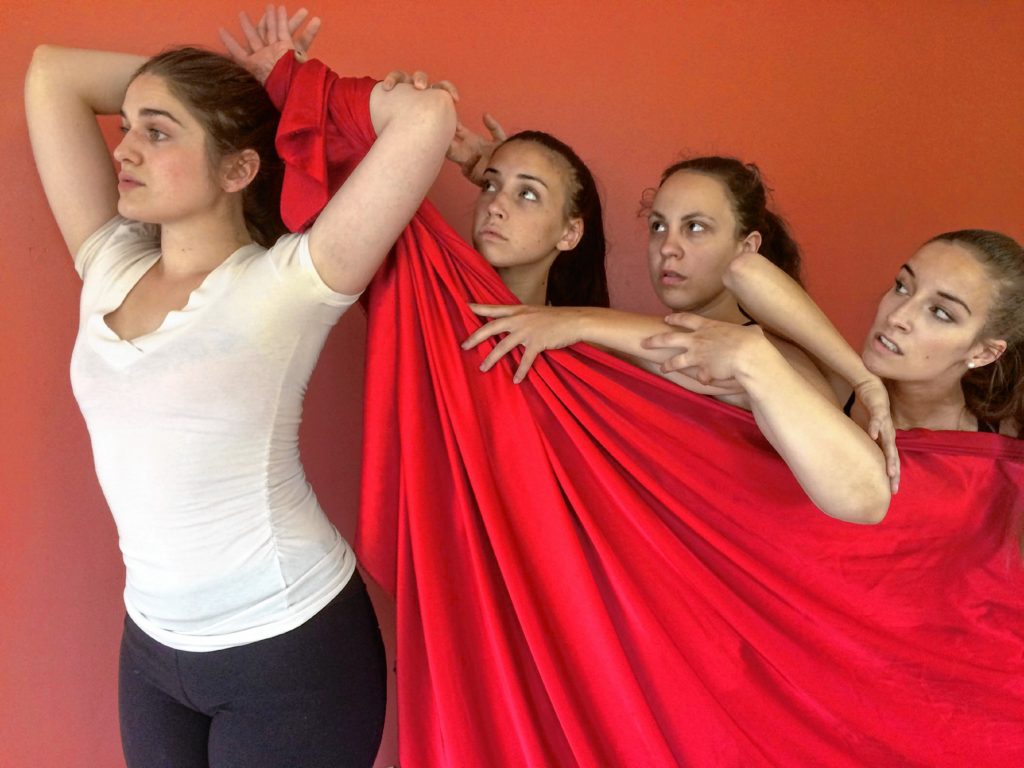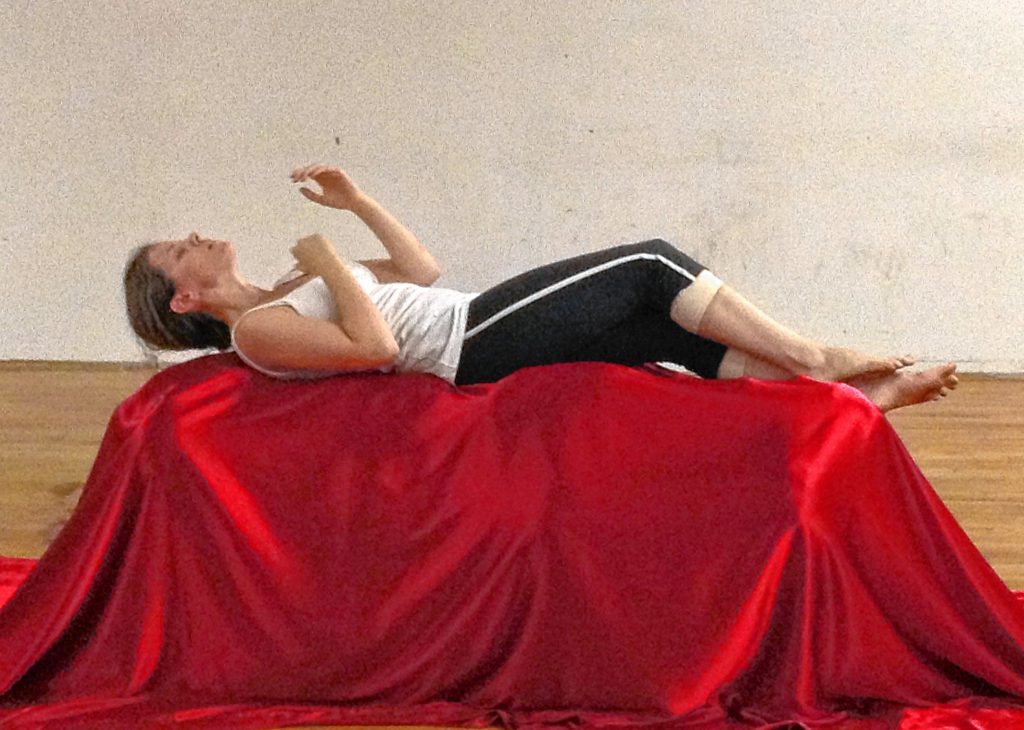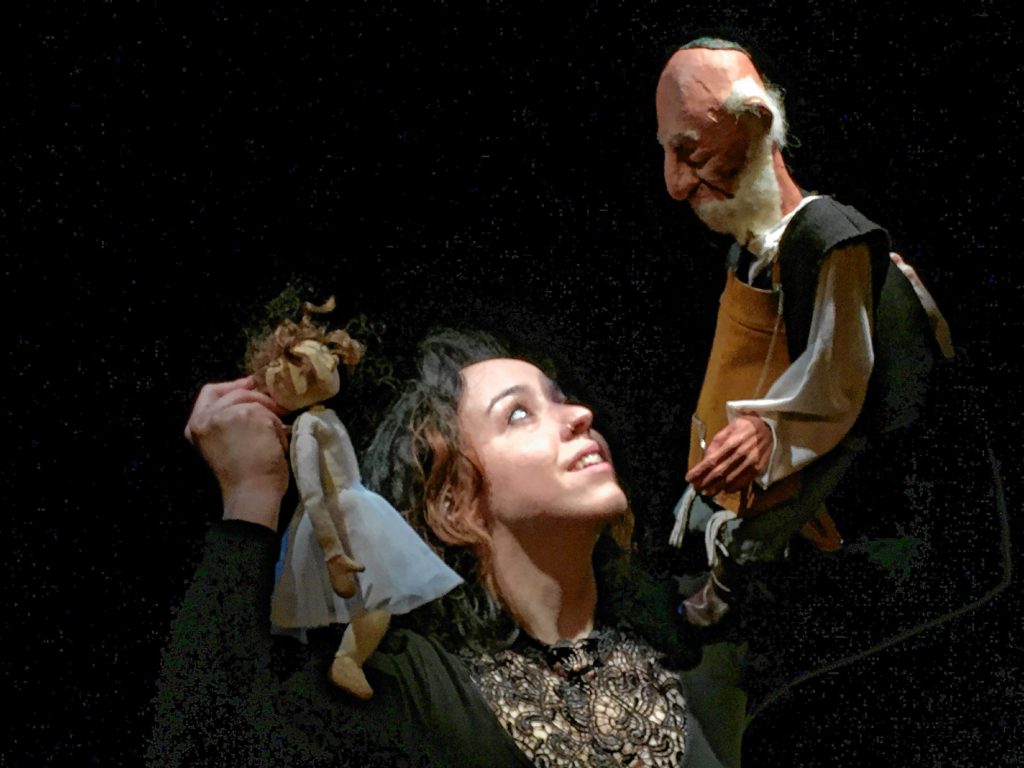Two theater pieces transmute their originals
What happens when you take someone else’s work and change it, adapt it, and mold it into something of your own? I’m not talking about plagiarism, but homage – giving new form or context to an admired original. Two new/old pieces of theater in the Valley do just that.
This weekend, the Valley’s Real Live Theatre company premieres The Life and Death of Queen Margaret, with text extracted from four of Shakespeare’s history plays to create a leading character from a previously supporting role.
Margaret of Anjou appears in the three parts of Henry VI (she’s his wife, political counsellor and ultimately battlefield commander) and in Richard III, where she seeks vengeance for his murder. “Margaret speaks some of Shakespeare’s most breathtaking lines,” says Toby Bercovici, director and, with Dan Morbyrne, adapter of Queen Margaret. But her sphere of action is narrow – “one of vicious political intrigue, revenge and tragedy. We wanted to flesh out her story, to make her more sympathetic and fully human,” particularly in her relationships with other women and her son.
The new play begins and ends at the moment of her death, as Margaret’s dying breath unfolds her life’s journey, animated by her blood and bones. “Because we are reimagining Shakespeare’s texts, rearranging and reinvigorating them with feminist sensibilities,” says Bercovici, the production turns the all-male Elizabethan performance practice on its head. Here, all the characters are played by women, with Myka Plunkett in the title role.
“Women still struggle to be seen as possessing equal competence, acuity and leadership capabilities to men,” Bercovici says, “and are still judged harshly when they exhibit the qualities that in men are lauded.” Which puts one in mind of a certain woman currently claiming a leading role in our own political drama.
The Life and Death of Queen Margaret plays July 29-31 and Aug. 5-6 in the Hallie Flanagan Studio Theatre, Smith College, sliding scale $10-$18.
Passing the Glove
Last weekend at the Ko Festival of Performance, Shoshana Bass, daughter of master puppeteer Eric Bass, took possession of her father’s signature show and made it her own, interweaving it with autobiography and reflections on that most magical of performing arts. It is the first puppet show she remembers, one that was performed just for her by her parents, using the place settings on a restaurant tabletop: a battle of silverware ending with a spilled salt shaker.
The image of free-running salt, and later white sand, flows through When I Put on Your Glove. It’s a memory piece that expertly and movingly incorporates the four mini-fables from her father’s Autumn Portraits, a longstanding staple of the repertory at Sandglass Theater, the Putney, Vermont–based but internationally acclaimed puppet troupe founded by Shoshana’s parents.
The exquisite vignettes – mysterious, melancholy, ironic – are stitched together with memories of her childhood, often on the road with the Sandglass company – “a life of waiting,” she explains, when her closest companions were the puppets, since everyone else was a grown-up. Her reminiscences are accompanied by a small, almost embryonic wooden puppet, little more than a round head and bubble nose with a wisp of a dress. This stand-in for little Shoshana investigates her father’s much taller puppets, each of them suffused with lively detail – as are the stories themselves.
There is a funny/sad sequence in which a puppet tries in vain to repeat the puppeteer’s sleight-of-hand trick, a mythic folktale with echoes of Native American tradition, a parable of a mystic invoking his inner demon only to be effaced by it, and a witty portrait of an old Jewish shoemaker haggling with the angel of death. A fifth Autumn Portraits episode is represented by a film of Eric Bass’s performance of it, projected onto a shimmering cascade of sand.
Shoshana’s enactment of her inheritance is technically and artistically assured, a faithful replica that honors the original while placing the young performer’s own creative stamp on it. The show as a whole is a kind of coming-of-age, as the daughter comes into her own as an artist and as the father, rather than simply retiring the show and the handmade, love-made puppets, passes his glove to the next generation.
The generational theme continues at Ko’s venue on the Amherst College campus, with two cross-cultural movement-theater ensembles investigating themes of incarceration and “the school-to-prison pipeline.” This weekend, hip-hop dancer Sokeo Ros, a hit at last year’s festival, returns with the multigenerational Everett Company of Providence, Rhode Island, for The Freedom Project. That’s followed by Tenderness from the Performance Project’s First Generation ensemble of young artists representing six nationalities and performing in seven languages. Info and tickets at kofest.com.
Contact Chris Rohmann at stagestruck@crocker.com.





